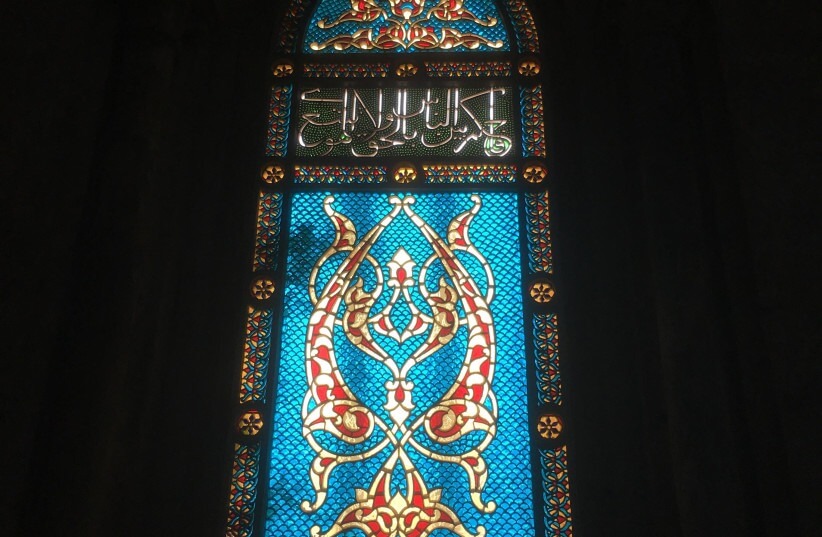Window of Last Supper site broken after Israeli throws stones at It
The suspect targeted what is traditionally believed to have been the site of the Last Supper, amid a sharp rise in vandalism and assaults against Christian and Christian institutions in Israel

A stained glass window in the supposed room of the Last Supper. Courtesy of Wikimedia Commons
This article originally appeared on Haaretz, and was reprinted here with permission. Sign up here to get Haaretz’s free Daily Brief newsletter delivered to your inbox.
An Israeli Jew threw stones Thursday evening at the windows of the room said to be the site of the Last Supper, outside Jerusalem’s Old City walls, shattering the stained glass.
This site, also known as the Cenacle, is sacred for Christians and is part of the David’s Tomb complex.
The suspect, who is known to the police, arrived at the scene and threw stones at the building’s windows, smashing them before a security guard who was present at the site detained him.
Police forces later arrived to take him in for questioning. He was brought before a Magistrate’s Court judge the following day, and was released under the condition that he would stay away from Jerusalem’s Old City for 30 days.
The suspect had claimed that he was present at the time of the incident but did not throw the stones. A police officer who presented documentation to the judge refuted the claim. The suspect also claimed to be an orphan living in a tent in the Ben Hinnom Valley.
This attack follows a string of attacks on Christian sites and events.
Last Friday, an event on the subject was forced to move venues following pressure from the Jerusalem municipality.
In January, two Jewish teens were indicted after they broke into the Protestant Christian cemetery on Mount Zion and desecrated more than 30 graves.
Vandalism and assaults targeting Christians and Christian institutions in Jerusalem have risen sharply since the beginning of the year, something leaders of churches in the city link to the tone of the new government.
Church sources say the police do not treat the situation seriously enough and refuse to identify the growing list of violent incidents as a trend.
According to the sources, only a small percentage of incidents are reported to the police, and the extent of the phenomenon is unknown.
A message from our CEO & publisher Rachel Fishman Feddersen
I hope you appreciated this article. Before you go, I’d like to ask you to please support the Forward’s award-winning, nonprofit journalism during this critical time.
We’ve set a goal to raise $260,000 by December 31. That’s an ambitious goal, but one that will give us the resources we need to invest in the high quality news, opinion, analysis and cultural coverage that isn’t available anywhere else.
If you feel inspired to make an impact, now is the time to give something back. Join us as a member at your most generous level.
— Rachel Fishman Feddersen, Publisher and CEO